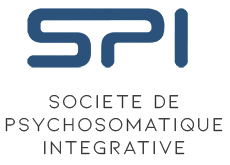Man is a psychosomatic unit
What is "Integrative Psychosomatics"?
Integrative Psychosomatics is taught at the Faculty of Medicine of La Pitié-Salpêtrière since October 2006 within the framework of the Third Cycle of Studies and Continuing Education of the University of Paris 6 (Pierre et Marie Curie) (see description of the diploma).
At the beginning of the 21st century, this professional diploma proposes a new scientific approach to psychosomatics: INTEGRATIVE PSYCHOSOMATICS, at the crossroads of psychoanalysis, medicine and neuroscience, with reference to new disciplines such as psycho-neuro-immunology, psycho-neuro-endocrinology, neuro-psychoanalysis, etc.
This new approach constitutes a break with the traditional psychosomatic approaches, namely psychoanalytically inspired psychosomatics and medically inspired psychosomatics.
It is a new approach to patients and diseases, moving away from the psychogenesis of diseases and the organogenesis of diseases (see History of psychosomatics). We want to question the beliefs in the predominance of the mind over the body (psychogenesis) or the predominance of the functioning of the organs (organogenesis) in order to understand and heal the sick and the diseases.
This new discipline integrates, for the psychic system, the model of psychic functioning of metapsychology (S. Freud), and for the other systems, the most recent discoveries concerning biological functioning and the recent approaches of neuroscience.
This training emphasizes the need to approach somatic patients in their biological, psychological, and neural dimensions by placing them in their family and professional context, in order to facilitate diagnosis and therapeutic care.
"Man is a psychosomatic unit" (Jean Benjamin Stora); this unit is a system of systems in reference to the scientific approaches of Ludwig von Bertalanffy.
This complex system includes: the psychic system, the central nervous system, the autonomic nervous system, the immune system and the genome" (J.B.Stora, course on somatization processes, 2006-2008)
It is about dynamic interrelations between these 5 systems whose different states, balances and imbalances must be studied.
The human being is an open system dissipative of energy (I. Prigogine) and not a closed system as assumed by Sigmund Freud in the 19th century who referred to Carnot's second law to give a scientific foundation to his metapsychological concept of "economic point of view" (free energy and bound energy); we thus update the Freudian approach referring to the second principle of thermodynamics, that is to say the law of entropy in a closed system. We propose to replace the Freudian proposal with contemporary scientific proposals referring to human beings as "open systems dissipating energy".
Jean Benjamin Stora, June 19, 2012.
